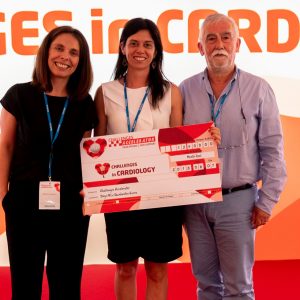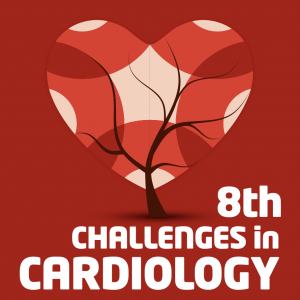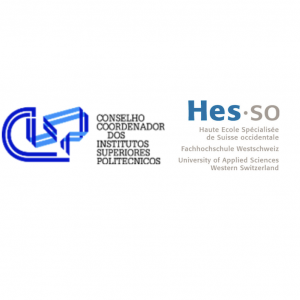About the Veggies4myHeart project
Veggies4myHeart is a food education project that aims to promote knowledge and consumption of vegetables in preschool children by creating and validating educational materials suitable for this age group.
This project arose from a joint initiative of the Center for Innovative Care and Health Technology (ciTechCare) and the Computer Science and Communication Research Center (CIIC) of the Polytechnic Institute of Leiria. In the 2018/19 academic year, the project's first year of intervention began in kindergartens in Leiria. Since then, various intervention strategies have been used, such as a children's story about vegetables, "Who wants to go to the village market?" and the Veggies4myHeart Digital Game, available on the App Store and Play Store.

methodology
Assessment Sessions
The Veggies4myHeart project has at least two moments in its activities to assess knowledge, willingness to try vegetables, and their consumption.
In the assessment sessions, the following are applied: an instrument to assess food taxonomic knowledge; a validated scale (FR-WTT), which measures the willingness to try vegetables; and recording the number of portions of vegetables that each child consumes.
Intervention Sessions
The Veggies4myHeart project has 5 intervention sessions:
1 – Tomato
2 – Red cabbage
3 – Cucumber
4 – Carrot
5 – Lettuce
Through the project’s educational materials, whether the children’s story or the digital game, nutritionists highlight each vegetable’s functions in the human body.
our story
The project involved 162 children from 8 classes.
Four educational instruments were used: the book "Who Wants to go to the Village Market?", the Veggies4MyHeart digital game, stickers with superheroes as rewards, and the food wheel.
The project intervened with 131 children from 7 classes.
The digital game was used to promote children's knowledge, and training sessions were held for kindergarten teachers and guardians.
Translation of the digital game into French.
The project involved 45 children from 2 classes in Switzerland.
The digital game was used to promote children's knowledge, and interviews were conducted with kindergarten teachers.
The project intervened with 205 children from 10 classes.
The digital game was used to promote children's knowledge, interviews and training sessions were held for kindergarten teachers and operational assistants, and a cooking workshop was held.
The project intervened with 179 children from 8 classes.
The story "Who wants to go to the village market?" was used to promote children's knowledge.
On November 25th, it won the 2022 Project of the Year Award in the "Community Nutrition and Public Health" category from Viver Saudável Magazine.
The project intervened with 98 children from 5 classes (2 kindergartens).
The digital game and the story "Who wants to go to the village market?" were used to promote children's knowledge and consumption of vegetables.
fundings


Challenges Accelerator – Challenges in Cardiology
The Veggies4myHeart project was awarded in the 8th edition of Challenges in Cardiology and received funding of €12,500. The award, which was awarded on June 7, 2018, was crucial to developing the Veggies4myHeart digital game.
This recognition was fundamental to the contribution of the Veggies4myHeart project, which has since contributed to promoting knowledge and consumption of vegetables in preschool children.

CCISP-HES-SO – Seed Money For Joint Swiss-Portuguese Academic Projects
Veggies4myHeart was honored to receive funding from CCISP-HES-SO in June 2020 through the call “Seed Money For Joint Swiss-Portuguese Academic Projects.” This award made it possible to improve the digital game, including translating it into French.
Furthermore, the funding made it possible to evaluate and compare the effectiveness of the intervention using the game in a group of children in Geneva, Switzerland.

